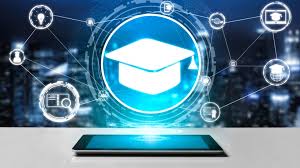
Artificial Intelligence (AI) is revolutionizing the education sector by making personalized learning more achievable than ever before. Personalized learning tailors educational experiences to meet individual student needs, taking into account their abilities, learning styles, and interests. Here’s how AI can be harnessed to personalize learning.
1. Data-Driven Insights:
AI systems can analyze vast amounts of data on students’ performance and learning habits. Such insights allow educators to identify each student’s strengths and weaknesses, enabling them to tailor the curriculum accordingly.
2. Adaptive Learning Platforms:
Platforms that use AI algorithms adapt in real-time to the learner’s progress. As a student interacts with the system, it adjusts the difficulty level of tasks and suggests resources suited to the learner’s pace.
3. Personalized Feedback:
AI can give detailed feedback on students’ work. This is not just about correcting answers but also providing explanations and suggesting ways to improve, which helps students understand complex concepts.
4. Predictive Analytics:
AI tools can predict where a student might face challenges by analyzing past performance. This enables proactive support for students before they encounter difficulties, making learning smoother.
5. Intelligent Tutoring Systems (ITS):
ITS use AI to simulate one-on-one tutoring sessions. They provide personalized instruction and feedback for students, with some systems even capable of understanding natural human language to interact with users conversationally.
6. Customized Learning Resources:
AI can assist in creating an individualized learning path for each student by recommending reading materials, videos, and practice problems that cater to their personal learning journey.
7. Scheduling Assistance:
AI can optimize study schedules by assessing when students learn best and scheduling challenging subjects during these peak times, which can lead to more effective learning sessions.
8. Gamified Learning Environments:
AI-powered educational games adjust in complexity and style as per the player’s skill level, keeping students engaged and motivated through a personalized game experience.
9. Automation of Administrative Tasks:
By automating administrative tasks like grading, AI frees teachers up to focus more on direct interaction with students and developing personalized content.
10. Accessibility Enhancements:
For students with disabilities, AI can tailor content delivery methods — like larger text for visually impaired students or speech-to-text capabilities for those who cannot write — promoting inclusive education tailored to each student’s needs.
As AI continues to evolve, so too will its ability in personalizing education. With its capacity for adapting content in real-time and providing instant feedback, AI represents a significant step towards a future where education is tailored to the individual needs of each learner.
